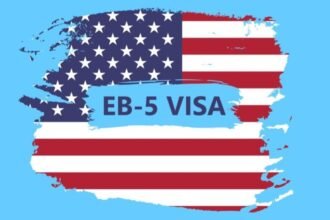The J-1 Exchange Visitor Program is designed to foster cultural exchange and mutual understanding between the people of the United States and other countries. While this program offers immense opportunities for participants in fields such as education, research, and training, some J-1 visa holders are subject to a specific condition known as the “two-year home residency requirement” under Section 212(e) of the Immigration and Nationality Act.
If you’re a J-1 visa holder subject to this requirement but wish to remain in the United States beyond your J-1 status (for example, to apply for an H-1B visa, permanent residency, or another immigration benefit), you’ll need to obtain a waiver of this condition. The primary way to apply for such a waiver is through Form I-612, Application for Waiver of the Foreign Residence Requirement.
This comprehensive guide will help you navigate the I-612 waiver process, understand eligibility requirements, prepare the necessary documentation, and increase your chances of a successful application.
What Is the J-1 Two-Year Home Residency Requirement?
Certain J-1 exchange visitors are required to return to their home country for at least two years after completing their program in the U.S. before they can:
- Apply for an H, L, or K visa,
- Apply for permanent residency (Green Card), or
- Change their status to most other non-immigrant visa categories within the U.S.
This requirement aims to ensure that J-1 participants bring back the knowledge and skills gained in the U.S. to benefit their home countries.
Who Is Subject to the Two-Year Home Residency Requirement?
You are subject to the two-year home residency requirement if any of the following applies:
- Government Funding:
You participated in a program funded (wholly or partially) by the U.S. government, your home government, or an international organization. - Skills List Requirement:
Your field of study or expertise appears on the Exchange Visitor Skills List of your home country, indicating high demand for such skills. - Medical Training:
You participated in a program for graduate medical education or training, such as through the Educational Commission for Foreign Medical Graduates (ECFMG). - Foreign Government Financing:
You received funding from your home country’s government to support your J-1 program.
If any of these conditions apply, you cannot adjust your immigration status, apply for certain visas, or pursue permanent residency in the U.S. without either fulfilling the two-year requirement or obtaining a waiver.
What Is Form I-612?
Form I-612, Application for Waiver of the Foreign Residence Requirement, is the official form used to request a waiver of the J-1 two-year home residency requirement. This form is processed by the U.S. Citizenship and Immigration Services (USCIS) in collaboration with the U.S. Department of State (DOS).
While there are several pathways to obtaining a waiver, Form I-612 is specifically used for two types of waiver categories:
- Exceptional Hardship Waiver:
Based on the claim that returning to your home country would cause exceptional hardship to your U.S. citizen or lawful permanent resident spouse or child. - Persecution Waiver:
Based on the fear that you would face persecution in your home country due to your race, religion, political opinion, or membership in a particular social group.
Eligibility Requirements for Form I-612
To apply for a waiver through Form I-612, you must meet specific eligibility criteria depending on the waiver category you’re applying under.
1. Exceptional Hardship Waiver
You may qualify if returning to your home country would result in exceptional hardship to your:
- U.S. citizen spouse or child, or
- Lawful permanent resident (Green Card holder) spouse or child.
What Counts as Exceptional Hardship?
The hardship must go beyond the normal emotional or financial difficulties experienced when families are separated. Examples of exceptional hardship may include:
- Severe medical conditions of the U.S. family member that cannot be treated in your home country.
- Political instability or dangerous conditions in your home country affecting the family’s safety.
- Psychological or emotional distress supported by medical documentation.
- Educational disruptions for children with special needs.
- Economic hardship due to loss of income if the family must relocate.
Note: The focus is on the hardship experienced by the U.S. citizen or permanent resident family member, not the J-1 visa holder.
2. Persecution Waiver
You may qualify if you can demonstrate that you would face persecution in your home country based on:
- Race
- Religion
- Political opinion
- Nationality
- Membership in a particular social group
This waiver is similar in nature to asylum claims but is processed separately through the I-612 application.
Evidence Required for Persecution Claims:
- Personal statements detailing the nature of the persecution.
- Documentary evidence such as news articles, human rights reports, or government documents.
- Affidavits from witnesses, experts, or community members familiar with your situation.
- Medical or psychological reports (if applicable).
Other J-1 Waiver Categories (Not Using Form I-612)
While Form I-612 is for exceptional hardship and persecution waivers, there are other waiver categories processed through the Department of State (DOS) Waiver Review Division:
- No Objection Statement (NOS) Waiver:
When your home government issues a “no objection” statement indicating they do not require you to return for the two-year period. - Interested Government Agency (IGA) Waiver:
If a U.S. federal government agency states that your work is in the public interest and requests a waiver on your behalf. - Conrad 30 Waiver Program (for Physicians):
For medical doctors working in underserved areas, typically requiring sponsorship from a state health department.
These waivers do NOT require Form I-612 but involve a separate process through the DOS.
How to Complete Form I-612
Form I-612 consists of several sections that must be completed accurately. Here’s a step-by-step guide:
Part 1: Information About You (Applicant)
- Full legal name (as it appears on your passport).
- U.S. mailing address.
- Date of birth, country of birth, and country of citizenship.
- Alien Registration Number (A-Number) if applicable.
- USCIS Online Account Number (if you have one).
Part 2: Reason for Request
- Select the reason for the waiver:
- Exceptional hardship to a U.S. citizen or lawful permanent resident spouse/child, or
- Persecution if you return to your home country.
Part 3: Information About Your J-1 Program
- Details about your J-1 program sponsor, including the program number.
- Dates of your J-1 participation.
- Description of your program activities in the U.S.
Part 4: Statement of Facts
- Provide a detailed explanation of the circumstances that support your waiver request.
- Include specific information about the exceptional hardship or persecution you would face.
- Attach supporting documents (medical records, affidavits, reports, etc.).
Part 5: Applicant’s Statement and Certification
- Confirm that the information provided is accurate and complete.
- Sign and date the form.
Part 6: Interpreter’s Information (if applicable)
- Complete this section if someone helped you translate the form.
Part 7: Preparer’s Information (if applicable)
- If an attorney or representative helped you, they must complete this section.
Supporting Documents Required
When submitting Form I-612, include the following documents to strengthen your case:
- Form I-612 (Completed and Signed)
- Filing Fee: Check the current USCIS fee (as of 2024, it is $930, but always verify on the USCIS website).
- Personal Statement: A detailed narrative explaining your situation.
- Proof of Relationship:
- Marriage certificate (for spouse claims).
- Birth certificate (for child claims).
- Evidence of Exceptional Hardship or Persecution:
- Medical records
- Psychological evaluations
- Expert affidavits
- Country condition reports
- Copies of J-1 and DS-2019 Forms:
- All DS-2019s related to your J-1 status
- Passport Identification Page:
- Copy of your passport and visa pages
- Proof of Lawful Status:
- If you’re currently in the U.S. under another visa, include documentation
Filing Instructions
Where to File:
- USCIS Lockbox:
The filing address depends on your place of residence. Check the USCIS website for the latest filing addresses.
Payment:
- Fee: $930 (subject to change)
- Payment Methods: Check, money order, or credit card (using Form G-1450 if paying by card)
Receipt Notice:
After submission, USCIS will issue a receipt notice (Form I-797) confirming they have received your application.
Processing Times
Processing times for Form I-612 can vary depending on the USCIS service center handling your case. As of 2024, the average processing time ranges from 6 to 12 months, but this can change based on caseloads.
Tip: You can check current processing times on the USCIS website using your receipt number.
After Submission: What Happens Next?
1. USCIS Review
USCIS will review your I-612 application to determine if it meets the legal criteria for a waiver. They may:
- Approve the waiver
- Deny the waiver
- Issue a Request for Evidence (RFE) if more information is needed
2. Department of State Review (if applicable)
In some cases, especially for hardship waivers, USCIS may forward the case to the Department of State’s Waiver Review Division for an advisory opinion. DOS will provide a recommendation, but the final decision rests with USCIS.
3. Decision
- Approval: USCIS will issue an approval notice, allowing you to proceed with changing your visa status or applying for a Green Card.
- Denial: You’ll receive a written explanation. You may appeal the decision, file a motion to reopen, or submit a new application with stronger evidence.
Common Reasons for I-612 Denial
- Insufficient Evidence: Lack of strong documentation to prove exceptional hardship or persecution.
- Failure to Demonstrate “Exceptional” Hardship: General claims of emotional distress are often insufficient without supporting medical or psychological evidence.
- Inconsistent Information: Discrepancies between the application and supporting documents.
- Lack of Focus on U.S. Citizen or LPR Family Member: The hardship waiver focuses on the family member’s hardship, not the applicant’s.
Tips for a Successful I-612 Application
- Provide Detailed Personal Statements: Clearly explain your circumstances with specific examples.
- Support Claims with Strong Evidence: Medical records, expert affidavits, and country reports strengthen your case.
- Consult an Immigration Attorney: For complex cases, legal advice can improve your chances of success.
- Keep Copies of Everything: Always keep copies of your application and supporting documents for your records.
- Respond Promptly to RFEs: If USCIS requests additional information, respond within the given timeframe.
Conclusion
Navigating the I-612 J-1 waiver process can be complex, but with careful preparation, detailed documentation, and a clear understanding of the eligibility requirements, you can significantly improve your chances of success. Whether you’re applying based on exceptional hardship or fear of persecution, presenting a compelling case supported by strong evidence is key.
Understanding the process and requirements helps reduce stress and confusion, allowing you to focus on building a strong application. Remember, seeking guidance from immigration professionals can be invaluable, especially for complex cases.
Your journey to securing a future in the United States starts with understanding—and successfully navigating—the I-612 waiver process.



